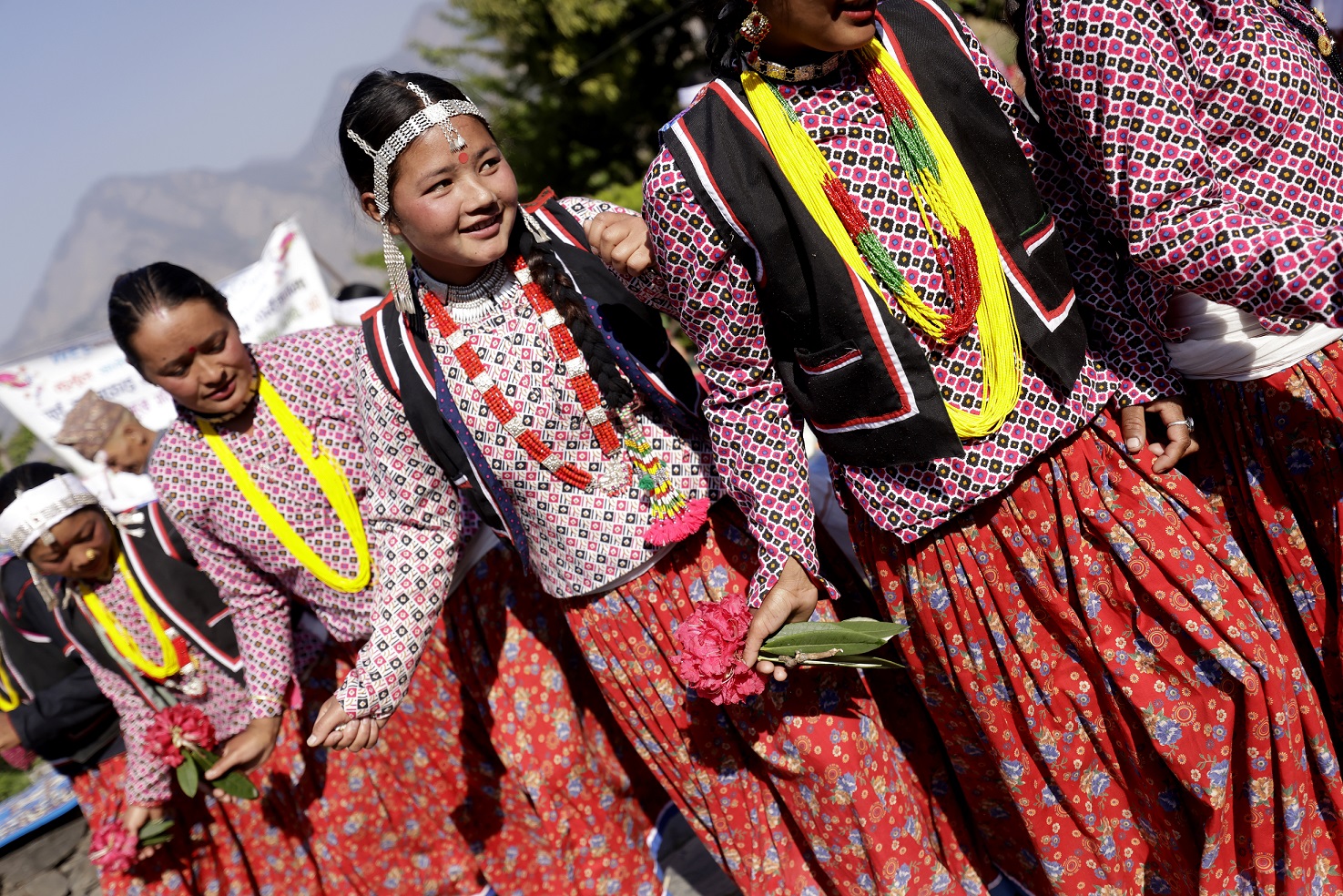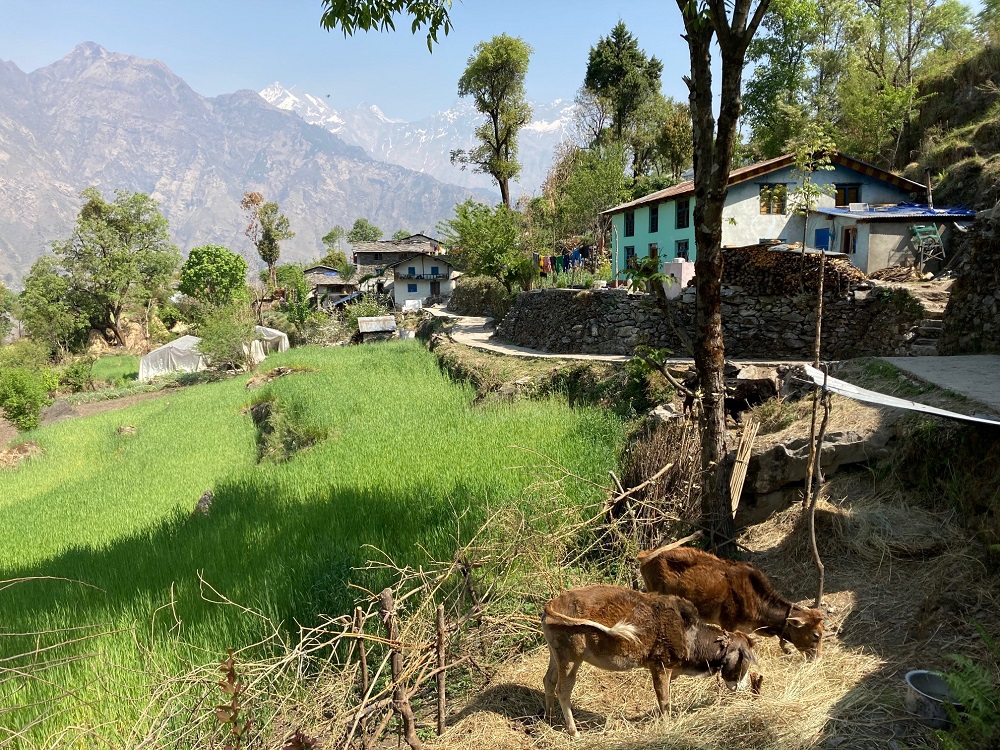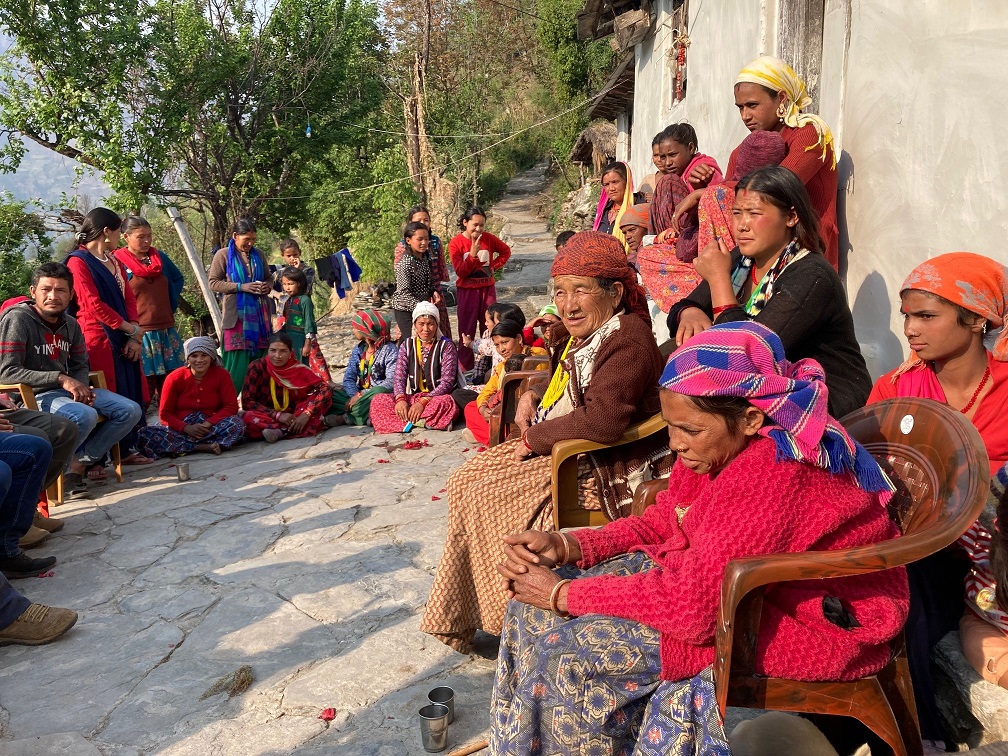Water management project in Nepal improved position of women, girls and marginalised Dalits
The Rural Village Water Resources Management Project in the Far West regions of Nepal succeeded in improving the rights and livelihoods of women, girls and disadvantaged groups. Development cooperation addressed a number of gender equality issues.

The Rural Village Water Resources Management Project, supported by Finland and the EU, will be concluded in autumn 2022. The project has improved the lives of girls and women by cutting the time they spend on getting water, among other changes.
There are very few men around in the Far West villages. Women take care of homes, fields and domestic animals. Most men work outside the village for example at construction sites in the vicinity or they live and work abroad.
The project has empowered women and disadvantaged groups. The beneficiary communities were required to have women and members of disadvantaged groups as members in the water user committees on an equal basis.
Being active in the local user committees have given women and disadvantaged groups an opportunity to have their voices heard. In addition, it has given women valuable experience of decision-making processes.
Women and girls are no longer ashamed to talk about menstruation
A few years ago, there were still communities in the Far West of Nepal that shunned menstruating girls and women from their homes. Menstruating women were seen as unclean, according to Nepalese tradition.
The tradition of Chhaupadi meant that menstruating girls and women were isolated in separate menstrual huts (Chhau huts) or in cowsheds. This tradition that discriminates against women and puts them at risk was banned by law in 2005. Although the practice was criminalised in 2017, there were still some villages in the Far West just a few years ago that did not comply with the law.
Mostly, the beneficiary villages no longer isolate menstruating girls and women from their homes. In addition, attitudes now allow menstruating girls to attend school. However, some traditional beliefs still prevail when it comes to the handling of food.

“The project changed many things for the communities and for women: now girls can go to school when they have their periods, they can use sanitary pads and talk about menstruation openly,” says Manju Bhatta.
The project organised workshops and training to break menstrual taboos. They were organised for municipal decision-makers and employees, healthcare professionals, teachers, religious leaders and traditional healers.
In villages, local employees went from door to door to share information on menstrual hygiene. Workshops were organised in schools to teach girls to make reusable sanitary pads using local raw materials. Schools have installed sanitary pad dispensers, and municipalities have started to distribute sanitary pads in schools free-of-charge.
Cleanliness brings health
Women in the village of Chaubisa say that children are healthier than before. With clean drinking water, children have considerably fewer stomach problems and less diarrhoea than before. Another reason is that hygiene has improved in other ways, too.
Nowadays, there is a toilet on every yard, whereas 10 years ago private toilets were a rarity. Then, faecal matter could easily contaminate the drinking water. The project did not fund the building of private toilets, but hygiene education was part of the work in the project.
The project helped build 208 accessible toilets and hand-washing facilities at schools. This makes it easier for children and young people with disabilities to go to school.

Better attention to hygiene means also that villagers now graze their cattle further away from their yards. After meals, dishes are left to dry on countertops instead of on the ground.
Having your own water tap prevents discrimination
About half of the 26 families in the village of Khattoli are Dalits. Dalits are at the bottom of the caste hierarchy and face a lot of discrimination. Officially, Nepal has banned the caste system, but in practice people’s origin can still prevent them from advancing and from being accepted in society.

The villagers say that nowadays Dalits face less discrimination than before. When asked what has made the Dalits’ position better, the villagers mention two reasons:
“First, the guerrilla war of Maoist insurgents from 1996 to 2006 and secondly, the Rural Village Water Resources Management Project.”
The project helped build a water tap for each household in the village of Khattoli. It means that no one can stop the Dalits from using a water tap or blame them for contaminating the water.
The water user committees that are responsible for the operation and maintenance of the water schemes have quotas for disadvantaged groups. As many as five of the nine members of the user committee in Khattoli are Dalits.
However, one discriminating practice persist, according to women in the village: the public attitude is against marriage between a Dalit and a higher-caste. They say in the village that some young couples have solved the problem by escaping across the border to India for the first years of their marriage.
Rural Village Water Resources Management Project (RVWRMP) in 2006–2022:
- Stakeholders: Government of Finland and Nepal, local municipalities, village communities, and the EU in the third phase
- Provinces of Sudurpaschim and Karnali as project areas
- Clean water and better sanitation for more than 600,000 people
- Better livelihood opportunities for 650,000 people
- Project implementation: FCG Finnish Consulting Group
Read more
- Read about the sustainability of the results of the Rural Village Water Resources Management Project and of improved food security.
- Read about the results of the Rural Village Water Resources Management Project in the development of livelihoods and rural businesses.
- Finland's relations and development cooperation in Nepal